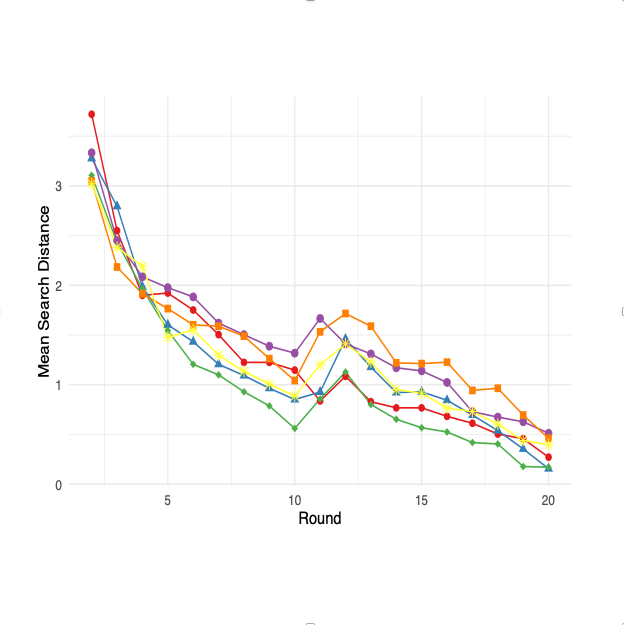My research focuses on social learning and cultural evolution, along with applications related to norms change and organizational culture.
I use lab experiments, evolutionary models and simulations, and econometric techniques to better understand social influence mechanisms and their consequences on the aggregate level, both globally and within individual firms.
Current Projects
How culture affects fitness: causal evidence at the Swiss language border.
In collaboration with Rafael Lalive and Charles Efferson. Published in Evolutionary Human Sciences.
Results from cultural evolutionary theory often suggest that social learning can lead cultural groups to differ markedly in the same environment. In this study, we exploit a cultural border dividing Switzerland in ways that are independent of institutional, environmental, and genetic variation. Using a regression discontinuity design, we estimate discontinuities at the border in terms of preferences related to fertility and mortality, the two basic components of genetic fitness. Analyzing six referenda, the study finds multiple discontinuities in voting patterns across the border, indicating culture’s potential role in shaping health and fertility choices. These findings further suggest that to uphold its cultural values, at least one of the two groups has supported policies that could impose fitness costs on individuals in the group.


Using successful leaders as examples of how to behave and how not to behave.
In collaboration with Charles Efferson. Working paper available.
People tend to imitate successful individuals, and leaders leverage this tendency when “leading by success.” However, research suggests that social learning strategies are more complex than previously thought. The added complexity and flexibility could challenge current success-based leadership techniques. Focusing on success-biased social learning, we studied how individuals adapt their behaviors based on the actions of successful leaders. Our findings highlight that strategies are multi-dimensional and heterogenous. Participants adjust their responses based on multiple pieces of social information and do it in complex and heterogeneous ways, including using successful leaders as negative examples.
Turnover is not sufficient to avoid over-exploitation
Preregistration and working paper available.
Teams often switch quickly from exploring new ideas to exploiting known solutions, which can limit innovation. This study tested if team turnover could help create more diverse solutions. Participants worked on a complex task in a lab. Some teams had changes in members, while others stayed the same. Results show that disruptions led to short-term increases in exploring new solutions, but this didn’t last long and didn’t improve overall performance. Instead, performance initially dropped after the disruptions before improving again. This suggests that disruptions can temporarily boost exploration but don’t reliably lead to better outcomes.
